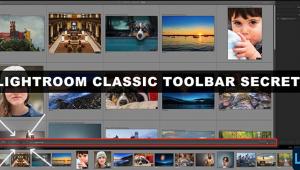The Photo Workshop Business; Teaching For Income, Opportunity, And A Way To Share The Craft Page 2
SB: For now, how do you handle both the teaching and the
business logistics?
KS: We have arranged the schedule so that the workshops are
planned far enough apart so that business issues usually don't come up
while on a workshop. However, since we are constantly promoting the next workshop
to our students during the workshop they are attending I do stay in touch with
my Blackberry.
SB: To what do you attribute the success of your workshops?
BL: The option to reestablish control of the camera is inviting.
For some of us, learning the traditional film methods and development was easy.
The controls on a regular film SLR are far fewer than the controls on a digital
camera. In contrast, the many options available in digital photography can be
both exciting and scary. Most people default to Auto mode. However, when the
Auto mode setting is used too often the photographer may begin to wonder whether
the creative control lies in their hands or to the camera's preset buttons.
Therefore, we offer a solution for the consumers who want to ditch the auto
setting and regain control in capturing an image.
 |
|
|
KS: I come from a photojournalism background where I learned
that you always have to get the shot and come home with the goods. I've
used this motto in my professional career and it has paid off. The same motto
can be applied to the workshop business. You want to leave your customer satisfied
so they will hopefully return for another class. In fact, we have had a lot
of repeat business.
SB: How do each of you feel about marketing photo workshops?
BL: Start close to home. Visit local colleges and contact their
Student Activities or Community Services to see if they will allow you to promote
or even host your workshop on campus. Colleges want their students to participate
in extracurricular activities. Your workshop can add and expand upon the different
classes they offer.
KS: Right now, CPW is primarily reliant upon our website, www.californiaphotographyworkshops.com,
on which we are applying the usual devices of Google HTML, cross links with
other websites (including links from our personal photography websites), and
search engine optimization. Our prior site through www.multiply.com was used
as a tool for our adult education students to post and share the photos shot
during our classes. Some of our former students are now using the CPW site.
This has been an important element of our marketing as our students remain invested
and return to the website for future workshop information.
 |
|
|
Thinking Of Teaching A Workshop?
Before you look at how much fun this could be (as well as the additional income)
take a look at the time, costs, and work ahead of you. There are many logistical
considerations to work out before you can launch your workshop business. Here
are some specifics to consider:
· Be sure to specify the skill level "prerequisite" if any.
· Find out the minimum and maximum size group needed to guarantee the
workshop will not cancel.
· What is included in the price? Spell everything out!
· Have all the transportation details worked out: air/driving, hotel,
location vehicles.
· If accommodations are provided, what is the quality of the hotel?
· Will attendees be sharing a room if traveling to an overnight location?
· Be sure there is a detailed itinerary available with the preregistration
materials.
· Decide if there will be handouts provided. Audiovisual required?
· What extra information can you provide attendees in advance about the
locations?
· What is the cancellation policy if there are not enough attendees?
· How many hours per day are spent in the field? In the classroom?
· Will there be a critique of current and prior work and who will do it?
Last but not least, what topics will you teach? What photography knowledge and
skills do you have that could be shared with others? Think basics and think
outside of the box, because both could be a source for workshops. If you really
want to get started teaching photo workshops ask yourself, "What are my
strengths in photography and how can I mold that into an interesting topic for
a workshop?" Be inventive and think of an interesting spin on an average
topic. Photo workshops allow you to pursue your passion for photography and
could supplement your income, all while helping others learn a new skill.
- Log in or register to post comments
















































